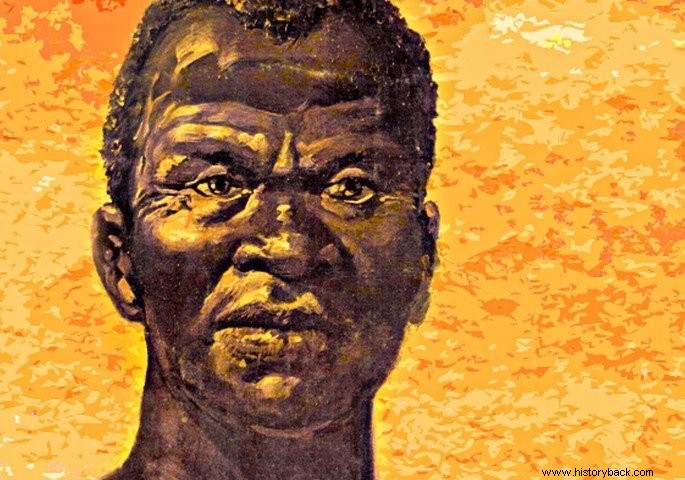Zumbi dos Palmares (1655-1695) was the last leader of Quilombo dos Palmares and also the one with the greatest historical relevance.
Zumbi gained respect and admiration from his quilombola compatriots due to his skills as a warrior, which gave him courage, leadership and knowledge of military strategy.
He fought for freedom of worship and religion, as well as for the end of colonial slavery in Brazil. Despite this, this leader was also known for the despotic severity with which he led Palmares, where there was even a milder type of slavery.
In any case, he did not admit the domination of whites over blacks and, therefore, became the greatest symbol for the freedom of blacks in Brazilian history.
Biography of Zumbi dos Palmares
Zumbi was the nephew of the leader Ganga Zumba, who, in turn, was the son of Princess Aqualtune of the Jagas (or Imbangalas), a people of military traditions with great warriors.
There is little data on his personal life, but it is known that he was married to Dandara, who fought alongside him.

Zumbi was born approximately in 1655, in Quilombo dos Palmares, Captaincy of Pernambuco, in the Serra da Barriga region. Today, the location is União dos Palmares, in the Brazilian state of Alagoas.
Zumbi was taken prisoner by Brás da Rocha Cardoso's expedition and handed over to the care of Father Antônio Melo, in Porto Calvo, when he was still about six years old.
He was then baptized with the name “Francis” and received a painstaking education. He learned Portuguese and Latin, as well as catechism to be baptized in the Catholic faith.
At the age of 10, he was already fluent in Portuguese and Latin. At 15, he ran away and returned to the Quilombo de Palmares.
A few years later, in 1675, Zumbi gained notoriety for defending the quilombo from Portuguese troops. In this bloody battle, he demonstrated his jaga warrior skills.
At the age of 25, Zumbi challenges his uncle. In 1680, he takes the place of Ganga Zumba as leader of Palmares (according to scholars, Ganga Zumba would have been assassinated).
His attitude towards the colonial government is one of defiance and confrontation. Thus, the Portuguese leaders hired the services of the pioneers Domingos Jorge Velho and Bernardo Vieira de Melo.
In 1694, they lead the attack that will destroy the 'Cerca do Macaco', capital of Palmares. They completely destroyed it and injure its leader, Zumbi, who manages to escape.
Learn more about Quilombo dos Palmares.
Curiosity
The word “Zumbi” or “Zambi”, the name adopted by the hero, is of origin 'kimbunda ', and alludes to spiritual beings such as ghosts, specters, and goblins.
Death of Zumbi dos Palmares
In 1695, on November 20 , Zumbi is denounced by one of his captains, Antônio Soares, and killed by Captain Furtado de Mendonça. The leader of Palmares was 40 years old.
After defeating and killing Zumbi, the captain was awarded fifty thousand réis by the monarch D. Pedro II of Portugal.
His head was cut off, salted and taken to Governor Melo e Castro. It was exhibited in a public square in order to put an end to the myth of Zumbi dos Palmares' immortality.
His death date, November 20, was adopted as Black Consciousness Day.
Understand everything about Slavery in Brazil.
Homages to Zumbi dos Palmares
The importance of Zumbi dos Palmares is so great for the black movement that today its name baptizes a Faculty:the Zumbi dos Palmares-FAZP-in São Paulo.
In addition, Maceió/AL International Airport, opened in 2005, bears his name.
The Rio de Janeiro samba school Vila Isabel paid tribute to Zumbi dos Palmares in 1988 with the theme "Kizomba, Festa da Race". That's how she won her first title with the theme.
Want to know more? There are more texts here :
- Black Awareness Day
- Origin of Black Awareness Day
- Black Brazilian Personalities
